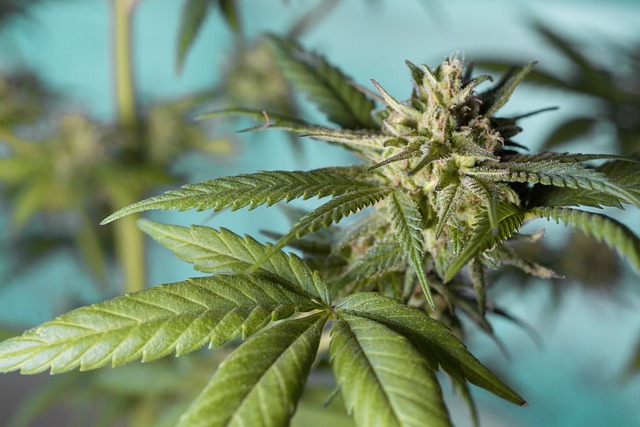Delta 9 gummies infused with THC offer a natural and edible form of anti-inflammatory relief through their interaction with the endocannabinoid system. These gummies contain THC, a cannabinoid known for its psychoactive properties but also for its potential to modulate immune cell activity and molecular pathways associated with inflammation. The anti-inflammatory compounds in delta 9 gummies may reduce pain sensation and offer an alternative to traditional anti-inflammatory medications, potentially benefiting those with chronic inflammation or related conditions. While the gummies present a precise dosing method for administration, users should consult healthcare professionals due to varying legal statuses and potential interactions with other treatments. Delta 9 gummies' anti-inflammatory properties are promising for therapeutic use, as they may alleviate inflammation without typical side effects, making them a complementary treatment option alongside traditional therapies for various inflammatory diseases. Always consider individual differences in response and the necessity for professional medical advice when considering delta 9 gummies as part of your health regimen.
Discover the transformative effects of Delta 9 gummies as a natural anti-inflammatory solution. This article delves into the therapeutic properties of these gummies, shedding light on their potential to alleviate inflammation. From the science backing their anti-inflammatory compounds to practical advice for incorporating them into your health regimen, learn how Delta 9 gummies can offer a holistic and effective approach to managing inflammation. Explore the benefits of these gummies and how they stand out in the realm of natural remedies.
- Unveiling the Anti-Inflammatory Potential of Delta 9 Gummies
- Understanding Delta 9 THC and Its Role as an Anti-Inflammatory Agent
- The Science Behind Delta 9 Gummies' Anti-Inflammatory Compounds
- Delta 9 Gummies: A Holistic Approach to Inflammation Management
- Maximizing the Benefits of Delta 9 Gummies for Anti-Inflammatory Therapy
Unveiling the Anti-Inflammatory Potential of Delta 9 Gummies

Delta 9 gummies, a popular edible form of cannabinoids derived from hemp or marijuana plants, are gaining recognition for their potential anti-inflammatory properties. These gummies contain delta 9 tetrahydrocannabinol (THC), the primary psychoactive component of cannabis, along with other non-psychoactive compounds such as cannabidiol (CBD) and various terpenes. The anti-inflammatory benefits are largely attributed to these cannabinoids and their ability to interact with the body’s endocannabinoid system, which plays a significant role in regulating inflammation and pain responses. Studies have indicated that delta 9 THC can influence the activity of certain immune cells and molecular pathways involved in the inflammatory response, potentially offering relief for those suffering from conditions characterized by chronic inflammation. Furthermore, the anti-inflammatory compounds found in delta 9 gummies may also contribute to a decrease in pain sensation, making them a promising option for individuals seeking natural alternatives to manage inflammation and discomfort. Users often report that these gummies can help alleviate symptoms associated with inflammatory conditions such as arthritis, without the side effects commonly associated with traditional pharmaceutical anti-inflammatory drugs. It is important for consumers to consult healthcare professionals before incorporating delta 9 gummies into their wellness regimen, especially given varying legal statuses across regions and potential interactions with other medications.
Understanding Delta 9 THC and Its Role as an Anti-Inflammatory Agent

Delta 9 tetrahydrocannabinol, commonly known as Delta 9 THC, is a cannabinoid found naturally in the cannabis plant. Unlike its more well-known counterpart, CBD, Delta 9 THC interacts with the body’s endocannabinoid system, influencing various physiological processes. One of the emerging areas of research involves the anti-inflammatory properties of Delta 9 THC. Preclinical studies suggest that this cannabinoid may exhibit anti-inflammatory effects, potentially offering therapeutic benefits for conditions characterized by inflammation. These effects are believed to stem from Delta 9 THC’s interaction with the CB2 receptors, which play a role in modulating the immune response.
The anti-inflammatory properties of Delta 9 THC can be harnessed through various consumption methods, including Delta 9 gummies anti-inflammatory compounds. Gummies offer a discreet and palatable way to administer Delta 9 THC, allowing for precise dosing and prolonged release into the body. This method of administration is particularly advantageous for those seeking relief from inflammation-related symptoms without the psychoactive effects typically associated with higher doses of THC. As research continues to unfold, the potential for Delta 9 gummies as a natural anti-inflammatory agent becomes increasingly promising, offering a complementary approach to conventional treatments for a variety of inflammatory conditions.
The Science Behind Delta 9 Gummies' Anti-Inflammatory Compounds

Delta-9 gummies infused with cannabinoids, particularly THC, have been gaining attention for their potential anti-inflammatory properties. These edibles contain delta-9 tetrahydrocannabinol (THC), which is the primary psychoactive component of cannabis. Recent scientific studies suggest that THC and other cannabinoid compounds found in delta-9 gummies can interact with the body’s endocannabinoid system, a complex cell-signaling system identified in the early 1990s. This system plays a crucial role in regulating a range of functions and processes, including immune response and inflammation. The anti-inflammatory effects of THC are believed to stem from its ability to modulate the activity of immune cells and cytokines, which are key mediators of inflammation. This modulation may help reduce the body’s inflammatory response in cases of acute and chronic inflammation, potentially offering relief for conditions such as arthritis and other inflammatory disorders.
Furthermore, the anti-inflammatory compounds within delta-9 gummies may also contribute to pain relief. THC has been found to activate both CB1 and CB2 receptors, which are part of the endocannabinoid system. Activation of these receptors can lead to analgesic effects, potentially aiding in the management of chronic pain. The gummy form of delta-9 THC allows for precise dosing, making it a convenient option for those seeking to harness its anti-inflammatory and pain-relieving benefits. However, it is important to note that individual responses to these compounds can vary significantly, and the therapeutic potential of delta-9 gummies should be discussed with a healthcare professional before use.
Delta 9 Gummies: A Holistic Approach to Inflammation Management

Delta 9 gummies have garnered attention as a holistic approach to managing inflammation, offering an alternative to traditional pharmaceuticals. These edibles are infused with cannabinoids, specifically delta 9 tetrahydrocannabinol (THC), which has been recognized for its anti-inflammatory properties. The body’s endocannabinoid system plays a crucial role in regulating inflammation and pain responses; delta 9 THC interacts with this system by binding to cannabinoid receptors, thereby modulating immune responses and potentially reducing the production of pro-inflammatory cytokines. This can be particularly beneficial for individuals experiencing chronic or acute inflammation due to various conditions. Moreover, the gummy format allows for precise dosing, ensuring users can manage their intake according to their specific needs. With a range of delta 9 gummies available on the market, consumers can now explore this natural method to support their body’s response to inflammation.
Maximizing the Benefits of Delta 9 Gummies for Anti-Inflammatory Therapy

Consuming delta 9 gummies can offer a convenient and palatable way to experience the potential anti-inflammatory effects of cannabinoids, particularly Delta 9 tetrahydrocannabinol (THC). These gummies contain Delta 9 THC, which, along with other cannabinoids and terpenes found in cannabis, may contribute to its anti-inflammatory properties. The endocannabinoid system within the body plays a crucial role in regulating various functions, including inflammation response. By supplementing with delta 9 gummies, individuals may help modulate this response, potentially alleviating symptoms associated with acute and chronic inflammation.
For those seeking to maximize the benefits of delta 9 gummies for anti-inflammatory therapy, it is advisable to consider factors such as dosage, frequency, and quality of the product. A balanced and consistent approach to consuming these gummies can enhance their efficacy. It’s also important to consult with a healthcare professional before integrating delta 9 gummies into one’s health regimen, especially considering individual differences in how the body processes THC and other cannabinoids. This will ensure that the anti-inflammatory compounds in delta 9 gummies are utilized effectively for one’s specific needs.
Delta 9 gummies have emerged as a notable dietary supplement, offering a unique approach to managing inflammation through their anti-inflammatory compounds. This exploration has revealed the potential of these gummies to contribute to one’s overall wellness regimen, providing targeted relief without the psychoactive effects typically associated with cannabis. By harnessing the therapeutic properties of Delta 9 THC, users may experience significant benefits in their inflammation management strategies. As research continues to unfold, the role of these gummies in health and wellness promises to expand, making them a compelling option for those seeking natural alternatives to conventional treatments.
